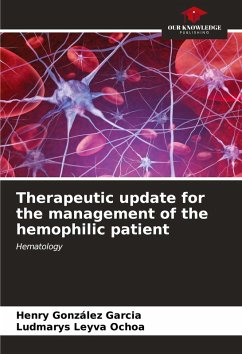
Update on the treatment of SCHIZOPHRENIA 2019
For a better quality of life
Versandkostenfrei!
Versandfertig in 6-10 Tagen
27,99 €
inkl. MwSt.

PAYBACK Punkte
14 °P sammeln!
There is a growing trend in the intention to implement social inclusion, from supranational organizations such as the UN, the OAS, the EU, etc. and all countries that adhere to the Universal Declaration of Human Rights. This trend is bearing fruit, in some areas more than in others. In relation to health rights, important advances have been made, such as the recognition of HIV or diabetes treatment. In the field of mental health, there are also significant initiatives from governmental and NGO spheres that promote inclusion for mental disability. Schizophrenia is also an important cause of men...
There is a growing trend in the intention to implement social inclusion, from supranational organizations such as the UN, the OAS, the EU, etc. and all countries that adhere to the Universal Declaration of Human Rights. This trend is bearing fruit, in some areas more than in others. In relation to health rights, important advances have been made, such as the recognition of HIV or diabetes treatment. In the field of mental health, there are also significant initiatives from governmental and NGO spheres that promote inclusion for mental disability. Schizophrenia is also an important cause of mental disability but is excluded from most rehabilitation and inclusion programs. The intention of this update is not only to improve the quality of life of patients, their families and their environment, but also to promote inclusion devices, tools and skills for patients, families and mainly the therapeutic team that should promote them.












